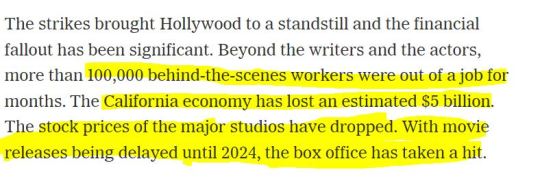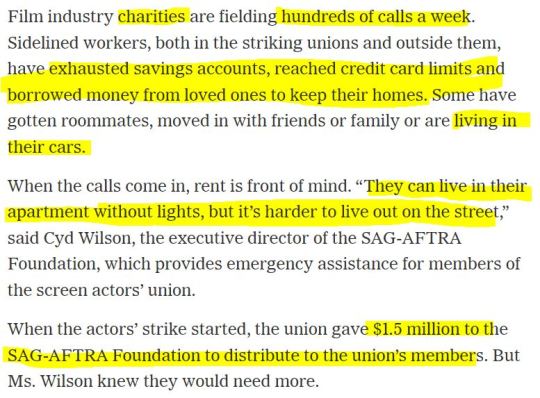#Impact of COVID-19 on real estate
Text
Impact of COVID-19 on Real Estate Trends and Preferences

Introduction:
The COVID-19 pandemic has been a catalyst for change in various aspects of our lives, and the real estate sector is no exception. From shifting preferences in housing to altering investment strategies, the impact of the pandemic on real estate trends and preferences has been profound. As the world adapts to the "new normal," it is crucial to understand how this crisis has reshaped the dynamics of the real estate market.
Remote Work and Home Preferences:
One of the most significant impacts of the pandemic on real estate has been the rise of remote work. With companies embracing telecommuting, many individuals and families have reevaluated their housing needs. Suburban areas and smaller cities have witnessed increased demand as people seek larger homes with dedicated office spaces and outdoor amenities. The desire for more space and privacy has led to a surge in demand for single-family homes, townhouses, and properties with spacious yards.
Urban Revitalization Challenges:
While suburban and rural areas have experienced a surge in demand, urban centers have faced challenges. The appeal of city living, characterized by proximity to amenities and cultural attractions, has been overshadowed by concerns about density and public health. As a result, some urban dwellers have opted to relocate to less densely populated areas, leading to a slowdown in urban real estate markets. However, as vaccination rates increase and restrictions ease, urban areas may experience a resurgence in demand, albeit with a renewed focus on health and safety measures.
Shifts in Commercial Real Estate:
The pandemic has also reshaped the commercial real estate landscape. With remote work becoming the norm for many businesses, the demand for office space has decreased significantly. Companies are reevaluating their office space requirements, with some opting for smaller footprints or flexible lease arrangements. Additionally, the retail sector has faced challenges as online shopping continues to gain traction, leading to vacancies in malls and commercial centers. However, there are opportunities for adaptive reuse as vacant retail spaces are repurposed for logistics, healthcare, or residential purposes.
Impact on Investment Strategies:
Investors in the real estate market have had to adapt to the changing landscape brought about by the pandemic. Traditional investment strategies may no longer be viable in the face of uncertainty and volatility. As a result, there has been growing interest in alternative real estate investments such as industrial properties, data centers, and healthcare facilities. These sectors have demonstrated resilience during the pandemic and offer attractive risk-adjusted returns.
Technology and Innovation:
The pandemic has accelerated the adoption of technology in the real estate industry. Virtual tours, digital transactions, and remote property management tools have become essential tools for buyers, sellers, and agents alike. Moreover, advancements in proptech and smart home technology have become increasingly relevant as homeowners prioritize convenience, comfort, and sustainability.
If you have any enquiries visit the below links
Home for Sale in Caledon
Homes For Sale In Brampton, Ontario
Homes for Sale in Mississauga
#Impact of COVID-19#Impact of COVID-19 on real estate#real estate services#real estate#real estate for business#rahul jindal#home for sale in brampton ontario#Home for Sale in Caledon#Home for Sale in brampton
0 notes
Text
The ripple effect
So finally, it would seem the news from Hollywood are not good at all. A press release from SAG-AFTRA informs us that AMPTP/TPTB chose to drop the towel after a very long negotiation process (not a good sign, in my book), that continued even after their latest unacceptable offer, as you can read down below (https://x.com/sagaftra/status/1712368110253285730?s=20):

The mainstream media (always NYT, in this house) reported also on the studios' offer, which may or may not be helpful for understanding what exactly is at stake (https://www.nytimes.com/2023/10/12/business/media/actors-strike-talks-suspended.html?searchResultPosition=2):

Now that is a very hardball, completely insolent position. I am peeling my eyes in disbelief at the idea of offering 'further protections around the use of A.I.', when it was hoped that the use of A.I. would be treated as an exception, not as future reality the industry should work 'around'. This is what really is at stake, not the almost abusive allegation of 'unbearable economic burden' (that is a mafioso pretext) an 800 million USD yearly viewership bonus would supposedly entail. The real financial impact of such a compromise solution, as disclosed by SAG-AFTRA, is negligible: 'less than 57 cents/subscriber'.

And, to make things worse, it would seem the studios deliberately lied to the press, too (it would not be the first time - we shippers know it so well, eh?):

All this circus, despite a cataclysmic impact on California's economy:

(Sourced at: https://www.nytimes.com/2023/09/21/realestate/writers-strike-rent-ny-la.html).
And that was the situation three weeks ago, when I found this article and promptly set it aside, waiting for the right moment to share it with you. And you know the situation is serious, when news like these are to be found not in the business, but in the real estate section of the newspaper. Along with this kind of comments, likely to suggest the possibility of unrest, if things go on like this:

People living in their flats without electricity or sleeping in their cars: it would seem this strike added unwanted insult to the drastic COVID injury in this particular sector of the labor market.
But what interested me the most about this whole affair was the ripple effect on the British film industry, in an attempt to see what is next for OL's Season 8. Thankfully, I didn't have to go very far and speculate more than the NYT did itself. Oh, and before Mordor starts shouting insanities, their LHR's correspondent paper, back in September, is called 'Hollywood Strikes Send a Chill Through Britain’s Film Industry' (https://www.nytimes.com/2023/09/19/business/hollywood-strikes-uk-filmmaking-industry.html):

Despite my unflappable optimism, I have to say that doesn't sound good at all, especially when you know this is precisely the case for OL, a production 'with stars who are SAG-AFTRA members' (or at least compelled to stand in solidarity with the strike, by SAG-AFTRA's own statement of conduct). I predict a very late start for the shooting of Season 8. And further unrest in the UK sector 'in the middle of next year' means that UK based and staffed productions may be fewer and less important, since that calendar announced by Equity could seriously compromise their promotion, a risk not many studios are willing to take. So less alternatives for both S&C, at least for the UK alone.
The writers' strike was a very long one - five months. I suppose the studios are willing to play for time and prefer a long stalemate of the negotiations with SAG-AFTRA, in the attempt of breaking the union consensus from the inside. With people's economies gone and the prospect of a dire, uncertain way ahead, there is no way SAG-AFTRA's compensations, mainly aimed at keeping people afloat with their rent costs, could cover the real impact on its members' everyday lives, on the long run. They would also prefer to foolishly cry over a fictitious 800 million USD 'burden' and not see the (at least) six times bigger negative impact on the local economy, which translates both in net losses of profit for thousands of businesses (mainly SMEs) and thousands of lost jobs.
And in the middle of all this, it would seem that Herself is on her way to the NYCC. Whatever for, sweet summer child, I would brazenly ask this strange, diminutive woman who started it all.

55 notes
·
View notes
Text
China’s recently announced GDP target for 2024 remains unchanged from last year, at 5 percent. But even if the country hits that number, its economic problems run deep. In January, China published economic data for the last quarter of 2023 which put its annual GDP growth rate at 5.2 percent, beating the government target. Yet, to put things in perspective, China’s real GDP growth rate from 2011 to 2019 averaged 7.3 percent while 2001-10 saw average growth of 10.5 percent.
After the figures dipped in 2020 to 2.2 percent owing to COVID-19, expectations for post-pandemic recovery were high. This was rooted in the assumption that China lifting its dynamic zero-COVID policy in January 2023 would unlock pent-up demand in the economy, which remained suppressed during the two-year-long lockdown. But that hasn’t happened. Some observers even doubt the recently released GDP data’s authenticity and suspect the numbers are far below the official figures.
But even if the figures are accurate, the wider trends of the Chinese economy suggest a worrying state of affairs. To begin with, this was the first time since 2010 that China’s real GDP growth rate exceeded its nominal GDP growth rate (4.8 percent). The nominal growth rate is calculated on the previous year’s numbers without accounting for inflation. Discounting inflation is necessary to remove any distortion arising from a mere increase in the prices of goods and services. Thus, the real GDP figure is calculated after adjusting for inflation to reflect the increase in output of goods and services. This is also the number economists and governments refer to when stating GDP growth numbers.
Usually, the nominal growth rate should be higher than the real growth rate. But in a deflationary year, the real growth rate can give a distorted picture, because deflation or negative inflation amplifies the real numbers. Thus, the fact that China’s real GDP number exceeded its nominal number indicates that Beijing’s gross value of output in real terms was amplified thanks to negative inflation, i.e. a general decrease in the prices of goods and services. If not for deflation, China’s real GDP growth in 2023 would have been even lower and would have certainly missed the national target of 5 percent.
The news on China’s gross fixed capital formation (GFCF) isn’t encouraging either. The term refers to the acquisition of fixed assets such as land and machines or equipment intended for production of goods and services. It is one of the four components of GDP (besides exports, household consumption, and government expenditure) and a measure of investment in the economy. For decades, China relied on a high GFCF rate to power its economy, but it has witnessed a sustained decline under President Xi Jinping’s leadership. For reference, the GFCF growth rate in the last 9 years (2014-22) averaged 6.7 percent as compared to 13 percent in the 21 years before that (1994-2014). It hit over 10 percent only on four occasions in the last nine years, once in 2021 thanks only to a significantly low base due to the pandemic year.
The bulk of this investment came from the real estate sector, which constituted a quarter of China’s total investments in fixed assets. Between 1994 and 2014, the sector witnessed a year-on-year growth rate of around 30 percent. But in the last eight years, the property sector has witnessed average growth of only 4.2 percent—and shrank by 10 percent from 2021 to 2022.
In part, the drop in investment can be attributed to the conscious decision of the central leadership under Xi to deflate the property bubble, which had become unsustainable, and reallocate and redirect capital from speculative to more productive forces. The decelerating impact this decision has had on China’s GDP has forced leadership to reverse its policies to some degree, trying to prop up the bubble. But the forced deflation is now proving too resistant to change, as is evident from the 2023 numbers that suggest the real estate sector shrunk by 9.6 percent.
But that’s not the only reason for the drop in investment. In the past year, China’s economy has witnessed an increasing securitization of its development. On numerous occasions, including at the 20th Party Congress in 2022 and the Two Sessions in 2023, Xi has underlined that the idea of development cannot be isolated from that of security. In a meeting of the Chinese Communist Party’s National Security Commission last year, Xi reiterated the need to “push for a deep integration of development and security.”
Consequently, in the first half of 2023, Chinese authorities carried out a series of crackdowns on foreign and domestic consultancy companies that offered consultancy services to help overseas businesses navigate China’s challenging regulatory environment. The infamous instances included raids on U.S. companies Mintz in March and Bain & Company in April. In May, Shanghai-based consultancy Capvison saw its offices raided for stealing state secrets and transferring sensitive information to its foreign clients. Weeks later, China’s Cyberspace Administration announced that U.S. chip giant Micron failed to obtain security clearance for its products.
This need to put security over the economy further became apparent in China’s revision of its counter-espionage law, which came into effect in July 2023. The updated law not only broadens and dilutes the definition of espionage but also confers wide-ranging powers on local authorities to seize data and electronic equipment on account of suspicion. China’s new developmental security approach, which manifested in its crackdown on foreign and domestic consultancies alike, has spooked private investors since then.
The government has issued repeated assurances to both domestic and foreign investors to improve the business environment and spur investment. However, investment in fixed assets by private holding companies has been declining since 2018. It briefly rebounded in 2021, only to drop again in 2022. The data for 2023, although not yet updated, is unlikely to pick up.
In contrast, investment by the state has gone up to compensate for the decline in private investment. But this can’t be a substitute in the long run for two reasons. First, rising government debt at a time when private investment is declining can lead to crowding out of capital, thereby shrinking the resource pool for private businesses. And second, the government has already stretched itself as its debt-to-GDP ratio rose to 55.9 percent in 2023. Given the mounting debt situation, there exists very little room for the government to even sustain, let alone expand, its current expenditure.
The data on China’s net exports suggests their contribution to GDP, although steadily picking up since recording a low in 2018, is unlikely to return to the glory years of 2001-14. While China will continue to be a leading export nation, the contribution of net exports to its growth rate might not be high. Poor external demand also means that export-oriented investments will see a decline, thereby pulling the overall investment rates further down albeit with a lag.
China’s strategy in the wake of this situation has been to seek to boost domestic consumption and household spending. Yet for domestic consumption to emerge as a new engine of growth requires not only sustaining its previous momentum but also increasing its share as a percentage of GDP to compensate for the loss of growth due to falling investment (in property and export-oriented sectors) rate.
However, a look at China’s household consumption expenditure as a percentage of GDP suggests that it has remained significantly low compared to other consumption-driven advanced and emerging economies. For instance, in both the United States and India, household consumption makes up more than 55 percent of GDP. In contrast, China’s household consumption has historically hovered around 40 percent—and dropped to 37 percent in 2022.
To add to the misery, the growth of China’s household consumption expenditure is also declining in the wake of a pandemic that left the public deeply insecure about their financial future. For ten years (2010-19), growth remained stable at around 10 percent before the pandemic forced the household consumption growth rate to drop to zero in 2020. After recording an uptick in 2021from that low, the growth rate dropped again in 2022. The negative difference between the nominal and real GDP in 2023, indicative of deflation, further confirmed the sluggish demand in the economy.
Thus, domestic consumption seems unlikely to be able to fuel China’s growth. The rising unemployment rate, declining consumer confidence, aging population, and rising dependence ratio will further burden any attempt to raise China’s consumption.
These trends may be baked in the near to medium term. China will not see a return to the high growth rates witnessed in 1980-2010 and will instead stabilize near 4 percent. This will likely derail China’s plan to transition from a middle- to a high-income country and certainly dent Xi’s dream of transforming China into an advanced socialist country. The much-dreaded fear of the “middle-income trap” is real for China.
3 notes
·
View notes
Text
Sam Singh Tripler - Best Techniques To Generate High-Quality Leads In Dubai’s Real Estate
Dubai's real estate market has been on a rollercoaster ride in recent years, with highs and lows that have left many industry experts wondering what the future holds. As one of the fastest-growing cities in the world, Dubai's real estate sector has experienced tremendous growth over the past decade. However, the COVID-19 pandemic has had a significant impact on the industry, leading to a decline in demand and a substantial drop in property prices. So, what does the future hold for Dubai's real estate market, and how can industry players navigate the current climate?

Expertise in the Field
Developing a different area of expertise and carving out a niche within Dubai’s real estate industry can prove incredibly advantageous for cultivating a positive and good reputation. Given the trust in word-of-mouth referrals in this sector, establishing oneself as a market authority can facilitate meaningful connections with serious buyers. A tailored specialty may range from a fundamental focus on first-time home buyers to an elevated emphasis on luxury properties. Additionally, narrowing one's view and specializing in a particular area or community can also effectively set oneself apart from competitors.
Partnership Plays a Vital Role in a Successful Business in Dubai’s Real Estate
Collaborating with professionals outside the realm of real estate presents an opportunity to acquire valuable insights and connections. By establishing a mutually beneficial relationship, these individuals can refer prospective clients to you, secure in the knowledge that you will reciprocate with your own clientele seeking to purchase, sell or rent a property. There are numerous sectors in the UAE where real estate agents can form advantageous partnerships, including Sam Singh Tripler. This is a reliable lead generator company for the real estate business. They can help you increase your leads that can turn into sales and profit. Sam Singh Tripler is composed of professionals in lead generation, so you are assured of the best outcomes.
Concentrate on Referrals
The real estate market benefits greatly from the invaluable contribution of referrals, which serve as an integral component in generating leads of superior quality. According to the National Association of Realtors in the United States, homeowners provide referrals to their agents at a rate of at least two times per year on average, and 40% of homebuyers have engaged the services of an agent who has been recommended by an acquaintance or family member. These leads are particularly unique as they tend to seek counsel from a single agent, specifically the one to whom they have been referred.
8 notes
·
View notes
Text
What is Value-added Tax Reduction Policy in 2022?
In order to stimulate growth and recover the economy after the impact of the Covid-19 pandemic, the Government has issued a policy to reduce value added tax. The reduction of value-added tax is an effective solution and tool to stimulate consumption and is expected to create a driving force for rapid development to help businesses restore business and production.

The value-added tax reduction policy has been promulgated by Decree 15/2022/ND-CP stipulating the tax exemption and reduction policy according to the National Assembly’s Resolution No. 43/2022/QH15 on fiscal and monetary policies currency to support the program of socio-economic recovery and development. Accordingly, value added tax will be reduced from 10% to 8%. This reduction will create conditions for consumers to increase spending, through which businesses will sell more products.
The value-added tax reduction will be applied to groups of goods and services currently subject to the 10% tax rate, except for the following groups of goods and services: (i) Telecommunications, financial and banking activities commodities, securities, insurance, real estate trading, metals and prefabricated metal products, mining products (excluding coal mining), coke, refined petroleum, chemical products; (ii) Products, goods and services subject to excise tax; (iii) Information technology under the law on information technology. However, if the goods and services are not subject to value-added tax or subject to value-added tax of 5% according to the provisions of the Law on Value-Added Tax, the provisions of the Law on Value-Added Tax shall be applied and not entitled to value added tax reduction.
It is important to note the value-added tax calculation method to apply. Accordingly, if the enterprise calculates value-added tax by the deduction method, the value-added tax rate of 8% shall apply; and in case the enterprise calculates value-added tax according to the percentage method on sales, collected, it will be reduced by 20% of the percentage rate for calculating value-added tax when issuing invoices for goods and services eligible for value-added tax reduction as prescribed.
The value-added tax reduction will be implemented quickly and businesses and consumers will immediately benefit. This tax reduction is expected to help reduce the cost of products and services, thereby stimulating consumer demand. Besides, it will help increase production output of enterprises and create more jobs for workers. Therefore, the reduction of value added tax is considered necessary solutions to promote the economy to recover soon after a long time affected by the pandemic.
The value-added tax reduction policy will be effective from February 1st, 2022 to the end of December 31st, 2022. Previously, value-added tax was only reduced for a few specific products, but with this policy, the object of tax reduction has been expanded in most fields of business and production. Therefore, the impact of this policy on the economy in the future is very large. However, in order for the value-added tax reduction to reach consumers, tax authorities need stricter inspection and control to meet the set goals. When in doubt, it is important to consult with tax lawyers in Vietnam for solutions and advice.
ANT Lawyers is a Law firm in Vietnam with international standards, recognized by Legal500, IFLR1000. We are an exclusive Vietnam member of Prea Legal, the global law firm network covering more than 150 juridictions. The firm provides a range of legal services as following to multinational and domestic clients.
2 notes
·
View notes
Text
Tampere's Aamulehti writes (siirryt toiseen palveluun) that not all measures meant to save energy in homes are a good idea.
The paper spoke with Niina Lehtonen, regional director of the real estate management company Tampereen Talopalvelut, and she pointed to a few mistakes people make when trying to trim their power consumption.
One common mistake is to try to cut back on ventilation, with the idea that it will keep heat in, and costs down.
Lehtonen's advice about ventilation systems is, "You shouldn't mess with them."
"The purpose of ventilation is to dry the house. If it doesn't work, there will be problems with moisture," she pointed out.
Asked if one can leave the sauna door open after bathing to take advantage of the leftover heat, Niina Lehtonen said that this is a fine idea, as it helps dry the washroom.
In contrast, turning off floor heating in the bathroom is not a good idea, as the floor will stay wet for a longer time, creating the risk that moisture may seep in and cause structural damage.
Two easy and efficient ways to save energy at home are to change over to LED lights where possible, and if one lives in a flat with a balcony, to make sure that the door seals are in good condition and prevent drafts.
Climate choices
Helsingin Sanomat (siirryt toiseen palveluun) looks at a report by the Finnish Climate Change Panel that says that low-emission choices by consumers play a significant role in Finland's efforts to fight climate change.
The panel, which is an an independent advisory council, points to two main opportunities – changes in diet and changes in transport.
Shifting to electric vehicles and increasing the use of public transport would have a clear impact, and this trend is already being seen.
When it comes to dietary change, however, the Climate Change Panel says Finland is stalemated.
A more climate-sustainable diet would require a reduction in the consumption of meat and dairy products. But in order for this to happen, it would require a change in national agricultural policies. Current policies support meat and milk production.
The Climate Change Panel says that the combined effect of Finland's climate policy and the additional measures proposed in its latest report could reduce the carbon footprint of households from 2015 levels by almost 50 percent by 2030.
Children's Independence Day Ball
Prime Minister Sanna Marin (SDP) welcomed hundreds of children to their very own Independence Day celebration at the House of the Estates in Helsinki on Wednesday, following a two-year suspension due to the Covid-19 pandemic.
As Ilta-Sanomat reports (siirryt toiseen palveluun), this is an annual event that brings children from all around the country to the capital for their own evening of entertainment, dance and a handshake with the prime minister and other dignitaries.
Each year, every municipality in the country is invited to send 10-year-olds to the ball. This year, of the 564 children invited, 558 were in attendance.
The theme of the celebration was "creators of the future", and the children were asked to make a drawing, photograph, poem, story or other piece of art reflecting the day's theme, which were all digitally displayed at the venue.
Abandoned pandemic pets
The farmer's union paper Maaseudun Tulevaisuus carries a feature (siirryt toiseen palveluun) about the Kotipesä animal shelter in Kokkola and what its director, Pekka Puolimatka, sees as a growing indifference to the welfare of pets.
The majority of animals the shelter cares for are cats, around 300 a year, plus some thirty or so dogs.
"When it comes to cats, the indifference of people is in a class of its own and also year-round. Cats are dumped like garbage bags," says Puolimatka.
A new class of abandoned animals the shelter has been caring for are pandemic pets.
"Spending more time at home inspired people to get pets, usually a cat. However, they did so without much thought. Once there was no longer any interest, money or abilty to take care of them, they became a burden. This is really sad, and says a lot about these people, as well," Pekka Puolimatka notes.
Puolimatka says that the animals at the Kotipesä shelter always manage to get a "forever home".
"A couple hundred cats a year get new servants. However, the criteria for a new home are very strict. As an animal care facility, we have a responsibility and obligation to take good care of each animal and to ensure that it gets the treatment it deserves as a new family member."
Snowy roads
Iltalehti (siirryt toiseen palveluun) is among the papers reporting that the snowfall seen overnight across large parts of the country will continue on Thursday, and warms motorists to be prepared for bad driving weather.
The Finnish Meteorological Institute has issued warnings of dangerous driving weather that are in force until Thursday evening.
Potentially dangerous conditions on the roads are forecast to continue through the evening in all parts of the country with the exception of the northeast and Finnish Lapland.
#nunyas news#updates from up north#good we don't do that ball thing here#president grope a child in office
3 notes
·
View notes
Text
How Has COVID Affected the Real Estate Market?
The supply and demand for a property are essential aspects of real estate. When there are fewer available properties than purchasers, a property's price rises. When more people are looking for houses, the price of a house falls. Home sales decreased as the Covid-19 outbreak spread throughout the country. Furthermore, many people were hesitant to display their houses due to the fear of catching the sickness.
Sales prices in specific locations dropped by up to 8% due to the COVID epidemic. In the second wave of infections, the impact was more apparent. COVID-19-related price cuts ranged from 1% to 50% in most cities, with an average of 14%. Fear of contagion pushed down prices in the most impacted districts, but the income effect was much more significant.
A recent study has explored the impact of COVID on the real estate market. They discovered that stocks of real estate businesses within two miles of a case dropped by 0.02% the day after the case was disclosed. This influence was more pronounced in buildings closer to the point than residential units.
It isn't easy to assess the effects of COVID on real estate markets. The quantity of real estate time series is minimal, and data is scarce. Furthermore, prices are influenced by more considerable macroeconomic conditions, which are frequently geographically and temporally limited. As a result, documenting the consequences of COVID-19 is critical to ensuring that the real estate market recovers. The real estate market is expected to show indications of revival in the summer of 2020.
With many people forced out of their houses due to the pandemic, landlords are increasingly evaluating the virus's long-term impact on their properties. This is a significant transformation for the real estate market and has a wide-ranging effect on landlords' businesses. For example, landlords that shut out their renters may face eviction lawsuits. Furthermore, landlords may see a decrease in operating income due to tenants' inability to make lease payments.
The COVID outbreak impacted the real estate market in numerous cities, notably those in China's Yangtze River Delta. Nonetheless, the effect was negligible in certain places, like Changsha. However, it did impact the pricing of used properties in some areas.
6 notes
·
View notes
Text
'South Bronx Rising' book launch begins this weekend
‘South Bronx Rising’ book launch begins this weekend
Thirty-five years after author Jill Jones published South Bronx Rising: The Rise, Fall, and Resurrection of an American she is back with a third, updated edition covering the explosion of real estate developments across the South Bronx as well as the impact of the COVID-19 pandemic in the borough.
In this latest edition, the forward is written by life-long Bronx resident and activist, Nilka…

View On WordPress
2 notes
·
View notes
Text
China cuts interest rates

China cuts interest rates as economic growth slows
China has unexpectedly cut a key interest rate for the first time in almost two years as official figures showed its economic growth had slowed.
Gross domestic product (GDP) grew by 4% for the last three months of 2021 from a year earlier, the National Bureau of Statistics said.
That was better than most economists had predicted but were a lot slower than the previous quarter.
In another sign of weakness, retail sales growth for December fell to 1.7%.
For the year as a whole, official data showed that China's economy grew by 8.1%, which beat economists' forecasts and came in well above Beijing's annual target of "over 6%."
However, some economists highlighted that the growth data, which was the slowest in a year and a half, has yet to take into account the effect of the latest coronavirus outbreaks many business listings.
"The GDP figure didn't reflect the impact of the domestic spread of the omicron variant since late December which will hit the service industry significantly, especially offline consumption and transportation, Yue Su from the Economist Intelligence Unit said.
To help boost the economy the People's Bank of China (PBOC) said it was lowering the interest rate on 700bn yuan (£80.6bn; $110bn) worth of one-year medium-term lending facility loans to 2.85%. It was the first such cut since April 2020.
Another PBOC lending measure, the seven-day reverse repurchase rate, was also cut, while the bank pumped another 200bn yuan of medium-term cash into the financial system.
The moves put China further apart from other major central banks around the world.
The US Federal Reserve has signaled that it plans to increase its interest rate three times this year.
While in the UK, the Bank of England raised the interest rates last month for the first time in more than three years, in response to calls to tackle surging price rises.
China's economic outlook has been clouded by growing concerns about the effects of Beijing's regulatory crackdown on businesses, the financial health of some of the country's biggest property firms, and the spread of the Omicron variant of Covid-19.
China's economy grew by an impressive 8.1% last year but the country was in the middle of pandemic lockdowns in 2020 so that is coming off a low base.
And when you look at the latest data closely, there are two worrying signs.
The country's property sector is attracting less investment as some of its biggest developers face a debt crisis.
The industry's slowdown was triggered by Beijing's measures to limit the amount of money some real estate firms could borrow so does not come as too much of a surprise. But a sharp contraction could affect the country's overall economic growth as the sector accounts for about a quarter of its GDP.
Consumers also seem to be feeling less optimistic, with retail sales coming in much weaker than expected. China's strict zero Covid policy has meant that some major cities started to go back into lockdown last month due to the Omicron variant. We have yet to see the full impact of that.
To help cushion the slowdown, the country's central bank has for the first time in almost two years taken the unexpected step of making some key loans for businesses cheaper.
While that may seem to be a loosening of President Xi's "common prosperity" policies to curb corporate debt, it seems unlikely that Beijing will go much further to support big businesses and their billionaire owners.
The government is also unlikely to ditch its zero Covid policy ahead of next month's Winter Olympics and a Communist party meeting later this year where President Xi is expected to tighten his grip on the world's second-largest economy with a third term in power business listings.
More on this story
·Evergrande moves from head office to cut costs
·Is China luring poorer countries into debt?
·How China's crackdowns are impacting business
Related Topics
·China
·GDP
·Asia economy
·Coronavirus pandemic
Evergrande: Real estate giant moves from Shenzhen head office to cut costs
Evergrande's logo was seen being removed from the firm's headquarters in Shenzhen, China
Cash-strapped Chinese real estate giant Evergrande has moved out of its Shenzhen headquarters to cut costs.
Evergrande said it had moved to a property that it owns, but that it was still in the same city.
It comes as its rival Shimao Group said on Tuesday it is in talks with potential buyers for some properties as it tries to reduce its debts.
The firms have come under intense pressure in the last six months after Beijing moved to curb their borrowing free business listings.
China's property crisis is estimated to have wiped more than a trillion dollars off the value of the sector last year.
·How China is trying to limit the Evergrande crisis
·How China's crackdowns are impacting business
Evergrande, the world's most indebted property developer, is struggling to make payments on its more than $300bn (£220bn) of liabilities and has missed payments on its offshore debt.
"In order to save costs, the company has gone through the lease cancellation procedures for Houhai Excellence Center in December 2021 and moved to its own property in Shenzhen," Ever Grande said in a statement on its website.
"The company's registered place has not changed and is still in Shenzhen," it added.
In September, the building was the scene of protests by Evergrande investors who crowded its lobby to demand repayment of loans and financial products.
Evergrande's logo was seen being removed from the skyscraper's facade on Monday.
However, it kept hopes alive that it could avoid defaulting for the first time on its onshore yuan bonds.
That came as it extended until Thursday a deadline for bondholders to agree to a six-month deferral on a $706m payment.
Evergrande's Hong Kong-listed shares have lost almost 90% of their value in the last year as investors became increasingly concerned that it could be close to collapse.
Separately on Tuesday, real estate company Shimao denied a media report that it had entered into a preliminary agreement to sell one of its prime properties, the Shanghai Shimao International Plaza.
But the company did say in the statement to the Hong Kong Stock Exchange that it was "in discussions with certain potential purchasers and may consider disposing of certain properties if the terms and conditions are appropriate in order to reduce the indebtedness of the Group".
Shimano's shares were trading slightly lower on Tuesday, after surging by almost 20% the previous day.
China's lending for construction projects around the world has proved controversial
1 note
·
View note
Text
Ian King: A Pillar of Progress in Los Angeles
Innovator and Leader
Ian King stands out as a key figure in Los Angeles, dedicated to enhancing the city’s vibrancy and quality of life. His diverse range of initiatives showcases his commitment to addressing various community needs and fostering a sense of unity.
Championing Art for All
With the Los Angeles Art Collective, Ian makes art accessible to the public and integral to the city's cultural landscape. This organization hosts art walks in the Arts District, workshops with local artists, and supports public installations that bring art into everyday life. By featuring works from artists such as Shepard Fairey and Yayoi Kusama, the Collective plays a crucial role in enriching LA’s cultural fabric and bringing people together through shared artistic experiences.
Real Estate Visionary
Ian’s expertise in real estate through Los Angeles Homes helps residents find their ideal homes while contributing to the city’s growth. His portfolio includes properties in prestigious areas like Beverly Hills and emerging neighborhoods like Silver Lake. Ian’s approach goes beyond transactions, focusing on creating communities where people can thrive. His dedication to client satisfaction and community development is evident in every aspect of his real estate work.
Promoting Mental Wellness
Through Laughing 4 Love, Ian addresses the need for conflict resolution and mental well-being. This initiative offers laughter yoga sessions in Griffith Park, comedy nights at local venues, and workshops that use humor to foster positive relationships and mental health. Laughing 4 Love underscores Ian’s belief in the power of joy and connection to build stronger communities.
Rebuilding Social Bonds
Recognizing the impact of social isolation post-COVID-19, Ian founded Los Angeles Life Connection to help residents reconnect. This organization hosts monthly mixers at places like The Grove, cultural outings to locations such as the Getty Villa, and wellness workshops in Silver Lake. These events encourage meaningful interactions and help restore the social fabric of the city, emphasizing the importance of human connection.
Philanthropic Endeavors
The Los Angeles Foundation for A Better Tomorrow (LAFT) embodies Ian’s vision for a more equitable and thriving city. LAFT focuses on key areas such as education, homelessness, environmental sustainability, and the arts. Through scholarships, funding for shelters, support for green initiatives, and grants for local artists, the foundation addresses both immediate and long-term community needs.
Guiding Principles
Ian’s work is driven by a philosophy centered on connection, compassion, and community. He believes in the transformative power of individual and collective efforts to create positive change. This guiding philosophy is reflected in all his initiatives, from promoting art and real estate to supporting mental wellness and philanthropy. Ian’s dedication to these principles showcases his deep love for Los Angeles and his commitment to making it a better place for everyone.
Future Aspirations
Looking forward, Ian King aims to expand his current projects and explore new opportunities to benefit the community. His ongoing commitment to innovation and dedication ensures that his initiatives will continue to have a lasting impact. By fostering opportunity, creativity, and connection, Ian strives to help Los Angeles evolve into an even more dynamic and inclusive city.
Through his varied and impactful initiatives, Ian King has established himself as a pivotal figure in Los Angeles. His contributions to art, real estate, mental health, community building, and philanthropy not only inspire others but also drive meaningful progress throughout the city.
0 notes
Text
In 2019, the skylines of many American downtowns were sparkling with new construction. Hudson Yards in New York, the Frost Tower in San Antonio, San Francisco’s Salesforce Tower, the futuristic Amazon Spheres and surrounding towers in Seattle, and thousands of other buildings were all part of the more than 100 million square feet of new office space built in the United States just before the onset of the COVID-19 pandemic.[1] Demand for cities seemed stronger than ever.
Flash forward four years. By now, COVID-19 has claimed the lives of over 1 million Americans and raised new questions about another potential casualty: Is the pandemic, particularly its impact on the nature of work, taking down the American city? Nowhere is this fear more pronounced than in the nation’s “superstar” cities and their shiny downtowns.
This specter of an office real estate apocalypse, “urban doom loop,” transit death spiral, or “ghost towns” is filling some urban observers with existential dread. So too are reports of rising crime and unsheltered homelessness in downtowns. However, this fear is not new, nor is it destiny.
But this dread should prompt public and private sector leaders to reassess. In fact, they have an opportunity to seize this moment to chart a new future for American cities—one that reimagines downtowns as prosperous and inclusive places that advance shared prosperity across all neighborhoods.
A group of public and private sector leaders in some of the nation’s largest cities—New York, Chicago, Philadelphia, and Seattle—have come together at Brookings Metro to do just this. These leaders were at the forefront of inclusive growth before the pandemic, and are now working with Brookings Metro and each other to identify policy, practice, and governance solutions that can be the seeds for the next generation of shared prosperity in downtowns, cities, and regions.
12 notes
·
View notes
Text
Transforming Workspaces: Agile Office Space Design for the Modern Workplace
The Principles of Agile Office Design
At its core, agile office design is built around flexibility, functionality, and connectivity. The principles guiding this design philosophy include:
Modular Furniture and Layouts:
Modular furniture allows for easy reconfiguration of office spaces. Desks, chairs, and partitions that can be moved and rearranged facilitate quick adaptations to new team structures or project requirements.
Activity-Based Working (ABW):
This concept involves creating different zones within the office that cater to specific activities. agile office space design Quiet zones for focused work, collaborative spaces for team brainstorming, and casual areas for social interactions ensure that employees can choose the environment that best suits their current task.
Technology Integration:
In an agile office, technology is seamlessly integrated to support mobility and connectivity. Wireless internet, cloud-based collaboration tools, and advanced communication systems enable employees to work efficiently from anywhere within the office.
Wellness and Ergonomics:
Prioritizing employee well-being through ergonomic furniture, ample natural lighting, and green spaces can enhance productivity and job satisfaction. Wellness rooms and adjustable workstations cater to physical comfort and mental health needs.
Sustainability:
Agile office design often incorporates sustainable materials and practices. Energy-efficient lighting, recycled materials, and indoor plants not only reduce the environmental impact but also create a more pleasant and healthier workplace.
Benefits of Agile Office Design
Implementing an agile office design offers numerous advantages for both employees and employers:
Enhanced Collaboration and Innovation:
Flexible spaces encourage spontaneous interactions and cross-departmental collaborations, fostering a culture of innovation. Employees are more likely to exchange ideas and develop creative solutions when the environment supports easy and frequent collaboration.
Increased Employee Engagement:
Providing a variety of work environments can boost employee satisfaction and engagement. When workers have the autonomy to choose how and where they work, they are more likely to feel valued and motivated.
Scalability:
Agile office spaces can easily adapt to the changing size of the workforce. agile workspace design As companies grow or downsize, modular designs allow for quick adjustments without significant disruptions or additional costs.
Cost Efficiency:
By optimizing space usage, agile office design can reduce the need for excess square footage, resulting in lower real estate and maintenance costs. Efficient use of space also means less energy consumption and waste.
Resilience:
In the face of unexpected challenges, such as the COVID-19 pandemic, agile offices can quickly adapt to new health guidelines and remote work trends. The ability to reconfigure spaces ensures business continuity and operational efficiency.

0 notes
Text
Forecasting Future Growth: Analyzing the Scope and Outlook of the Property Management Service Market
Overview and Scope
Property management services refer to the professional management of real estate properties on behalf of property owners. These services typically include tasks such as financial planning and analysis and tenant relations, aimed at maximizing the value and profitability of the property while minimizing the owner's involvement in day-to-day operations.
Sizing and Forecast
The property management service market size has grown strongly in recent years. It will grow from $14.36 billion in 2023 to $15.52 billion in 2024 at a compound annual growth rate (CAGR) of 8.1%.
The property management service market size is expected to see strong growth in the next few years. It will grow to $21.28 billion in 2028 at a compound annual growth rate (CAGR) of 8.2%.
To access more details regarding this report, visit the link:
https://www.thebusinessresearchcompany.com/report/property-management-service-global-market-report
Segmentation & Regional Insights
The property management service market covered in this report is segmented –
1) By Service: Rent Collection, Mortgage And Utility Payment, Leasing, Legal And Accounting Services, Repair And Maintenance, Other Services
2) By Property Type: Residential, Commercial, Industrial, Special Purpose Properties
3) By End Users: Property Managers Or Agents, Housing Associations
North America was the largest region in the property management service market in 2023. Asia-Pacific is expected to be the fastest-growing region in the forecast period. The regions covered in the property management service market report are Asia-Pacific, Western Europe, Eastern Europe, North America, South America, Middle East and Africa.
Intrigued to explore the contents? Secure your hands-on sample copy of the report:
https://www.thebusinessresearchcompany.com/sample.aspx?id=14782&type=smp
Major Driver Impacting Market Growth
The increasing demand for residential buildings is expected to propel the growth of the property management service market going forward. A residential building is a structure designed and constructed to serve as a dwelling place for individuals and families, providing a space for living, sleeping, and daily activities. The increasing demand for residential buildings is driven by various factors, such as population growth, low mortgage rates, and changing lifestyle preferences. Residential buildings utilize property management services to streamline operations, ensure tenant satisfaction, and maintain the value of their assets.
Key Industry Players
Major companies operating in the property management service market are Vanke Co. Ltd., International Business Machines Corporation, Evergrande Group, SAP SE, Jones Lang LaSalle Incorporated, Poly Property Group Co. Ltd., Colliers International Group Inc., Trimble Inc., Mapletree Investments Pte Ltd, Savills Singapore Pte Ltd, Yardi Systems Inc., RealPage Inc., AppFolio Inc., Entrata Inc., Southern Management Corporation.
The property management service market report table of contents includes:
1. Executive Summary
2. Market Characteristics
3. Market Trends And Strategies
4. Impact Of COVID-19
5. Market Size And Growth
6. Segmentation
7. Regional And Country Analysis
.
.
.
27. Competitive Landscape And Company Profiles
28. Key Mergers And Acquisitions
29. Future Outlook and Potential Analysis
Contact Us:
The Business Research Company
Europe: +44 207 1930 708
Asia: +91 88972 63534
Americas: +1 315 623 0293
Email: [email protected]
Follow Us On:
LinkedIn: https://in.linkedin.com/company/the-business-research-company
Twitter: https://twitter.com/tbrc_info
Facebook: https://www.facebook.com/TheBusinessResearchCompany
YouTube: https://www.youtube.com/channel/UC24_fI0rV8cR5DxlCpgmyFQ
Blog: https://blog.tbrc.info/
Healthcare Blog: https://healthcareresearchreports.com/
Global Market Model: https://www.thebusinessresearchcompany.com/global-market-model
0 notes
Link
0 notes
Text
Should you Invest in Real Estate in 2024

Sukhsimran Sam Gill “The real estate market has been a rollercoaster ride over the past few years, leaving many investors uncertain about the future. As we approach 2024, the question on every real estate investor's mind is whether now is the right time to invest or if it's better to hold off.”
The Challenges of the Current Market
For real estate investors in 2024, the landscape is vastly different from what it was just a few years ago. The COVID-19 pandemic has had a profound impact on the market, with some sectors, such as residential and industrial, performing strongly, while others, like commercial office space, have struggled.
Adding to the complexity is the high inflation and rising interest rates, which have put pressure on both buyers and sellers. The cost of financing has increased, making it more challenging to secure attractive deals. Furthermore Sukhsimran Gill says, the supply chain issues and labor shortages have driven up construction and renovation costs, making it harder to find profitable investment opportunities.
Overcoming Misconceptions and Fears
One of the biggest misconceptions that real estate investors in 2024 face is that the market is too volatile and risky to invest in. While it's true that the market has seen its fair share of ups and downs, history has shown that real estate remains a solid long-term investment.
Another common fear is that the market has already peaked and that prices will continue to decline. However, many experts believe that the current market adjustments are a natural correction, and that well-positioned properties in desirable locations will continue to appreciate over time says Sukhsimran Sam Gill
Dream Outcome
Despite the challenges, the dream outcome for real estate investors in 2024 is to find profitable investment opportunities that can provide a steady stream of passive income and long-term wealth building. To achieve this, investors need to adopt a strategic and disciplined approach.
One key strategy is to focus on properties in high-demand areas with strong job growth and population migration. These markets are likely to see continued appreciation, even in the face of economic uncertainty.
Additionally, investors should carefully analyze the local market data and trends to identify undervalued properties with the potential for strong rental income and capital appreciation.
Another important factor is to diversify your investment portfolio. By spreading your investments across different property types, locations, and asset classes, you can mitigate risk and maximize your overall returns.
Sukhsimran Sam Gill believes, it's crucial to work with experienced real estate professionals, such as property managers, financial advisors, and legal experts, who can provide valuable insights and guidance throughout the investment process.
Embracing the Opportunity
Despite the challenges, the real estate market in 2024 presents a unique opportunity for savvy investors. By understanding the current market dynamics, overcoming misconceptions, and adopting a strategic approach, investors can navigate the complexities and achieve their dream outcomes of building long-term wealth and passive income through real estate.
1 note
·
View note
Text
King's College Scholarship Funds
In the heart of Auckland's Otahuhu lies King's College, a bastion of academic excellence and holistic development since its establishment in 1896. Over the years, this prestigious institution has not only maintained its legacy but also emerged as a symbol of educational prowess, both in New Zealand and beyond.
Amidst recent endeavors to support deserving students at King College, one particular benefactor stands out: a real estate mogul deeply entrenched in activities related to teenage education. This entrepreneur, whose enthusiasm for empowering students knows no bounds, has quietly made a significant impact on the institution's scholarship funds.
Trent Cary Auckland resonates within the corridors of King's College, embodying a spirit of generosity and commitment to uplifting lives. His recent philanthropic gesture towards the college's scholarship funds epitomizes the institution's core values of inclusivity and accessibility to quality education, irrespective of financial backgrounds.
Beyond monetary contributions, Cary's involvement transcends typical benefaction. He personally ensures that essentials such as uniforms and additional tuition are provided to four underprivileged students, granting them access to opportunities previously beyond their reach. Cary's investment in their education serves as a beacon of hope, illuminating pathways to brighter futures for these deserving individuals.
TRENT CARY PARKLANE philanthropy extends far beyond King's College. From pioneering property finance initiatives aimed at facilitating homeownership to providing crisis support during the Covid-19 pandemic, his actions have offered solace and relief to countless individuals facing adversity. His recent donation to the King's Prep Centennial Building Project underscores his commitment to enhancing learning environments and ensuring future generations thrive.
In a world often characterized by self-interest, Cary's altruism shines brightly, leaving an indelible mark on those he touches. His dedication to empowering others, particularly vulnerable members of society, echoes the values upheld by King's College. Cary's legacy serves as a testament to the enduring impact of philanthropy in education, inspiring others to follow in his footsteps.
As King's College continues its mission of nurturing well-rounded individuals, Cary's benevolent contributions serve as a reminder of the transformative power of compassion and generosity. In the serene surroundings of Otahuhu, his name resonates not only as a real estate mogul but also as a beacon of hope for future generations.
0 notes